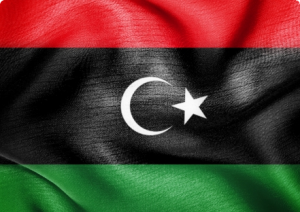Within days, Prime Minister Abdurrahim El-Keib will name a new government that will have the tough task of asserting the National Transitional Council's (NTC) control of a fractured country, reviving the economy and introducing democracy.
It will have to build institutions from scratch, sustain the revival of Libya's oil industry and disarm militias.
Bringing unruly and heavily armed militias under government control is a daunting challenge. Many foreign workers are adopting a wait-and-see approach until stability is restored.
"The economy is suffering from a lack of funds and the spread of weapons is one of the reasons for this with regard to tourism and foreign companies," Tripoli Islamist militia leader Abdel Hakim Belhadj told a seminar at Tripoli university.
At Tripoli Towers, one of the capital's main office blocks, the bulk of businesses operating are Libyan. The few foreign airlines that fly into Libya have re-opened their doors, but corridors are quiet.
Jack Mullan, director of risk consultancy Morelia Investments, said clashes between rival militias had deterred foreign businesses from rushing back to Libya.
British airline bmi has cancelled plans to resume direct flights from London to Tripoli this month and said on Friday there was no firm date for restarting the service.
"The poor security environment would have to improve before investors return. The current militia in-fighting would have to be resolved to soothe many investors' concerns. Otherwise many Fortune 500 companies will not return to Libya," said Mullan, who also cited an unpredictable regulatory environment.
"HUGE OPPORTUNITIES"
Yet with the civil war over and a government in the making, foreign executives are weighing the opportunities against the risks in an oil and gas-producing nation with the resources to pay for urgent reconstruction and healthcare needs.
Several Western nations have sent trade delegations, no big winners have emerged yet in the race for contracts.
"The government has to be named, there needs to be structure before business can be done," a diplomatic source said.
Tarek Alwan, managing director of London-based consulting firm SOC Libya, said he had been approached by numerous companies seeking guidance on how to enter the Libyan market.
"We have noticed a greater degree of demand to enter the Libyan market. There are huge opportunities in Libya in construction, infrastructure, IT, tourism," he said.
"My advice is that it is still a bit too early to do business in Libya. My advice is that they should be doing their homework and preparations."
One company that was quick to make a move was Britain's Heritage Oil which spent $19.5 million (12.3 million pounds) buying a controlling stake in Benghazi-based Sahara Oil Services in October, in a deal that was denied by Libya's National Oil Company.
NTC officials have said existing contracts with foreign firms would be honoured, although those found to have been awarded corruptly might be reviewed.
But major new concessions are unlikely to be awarded until the incoming transitional government has given way to an elected administration, scheduled to take place in eight months.
(Source: Reuters)





